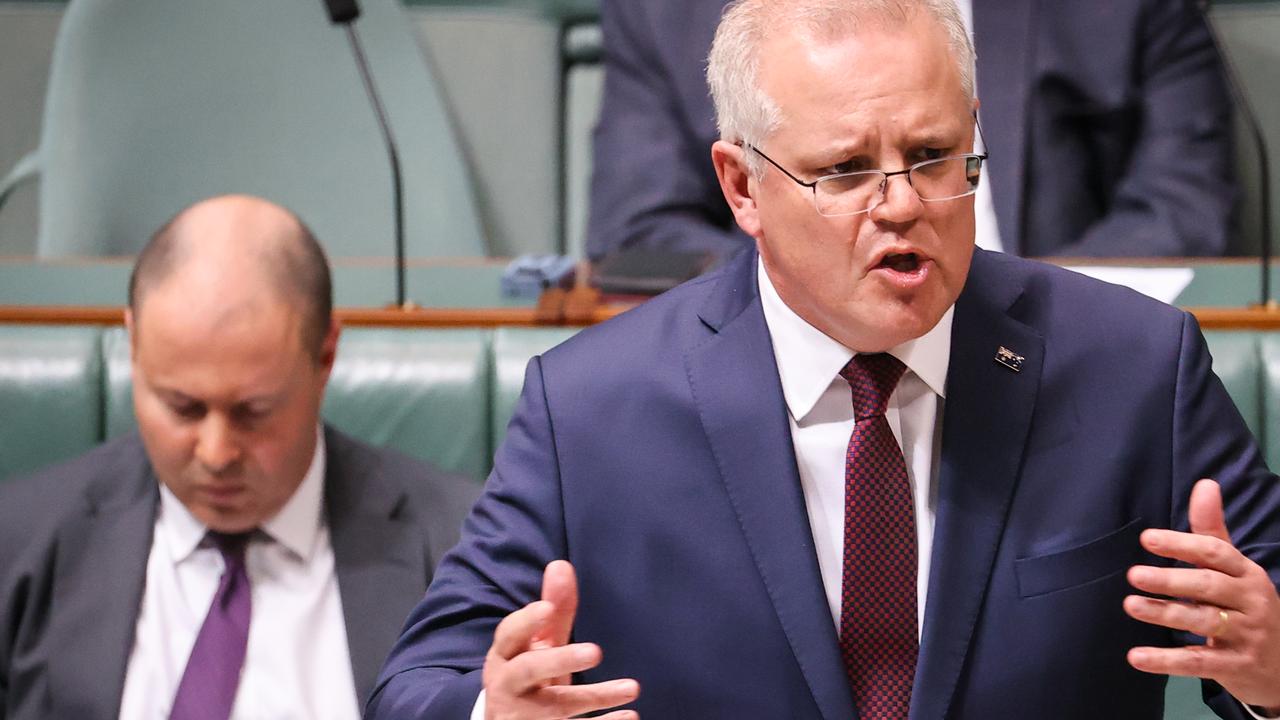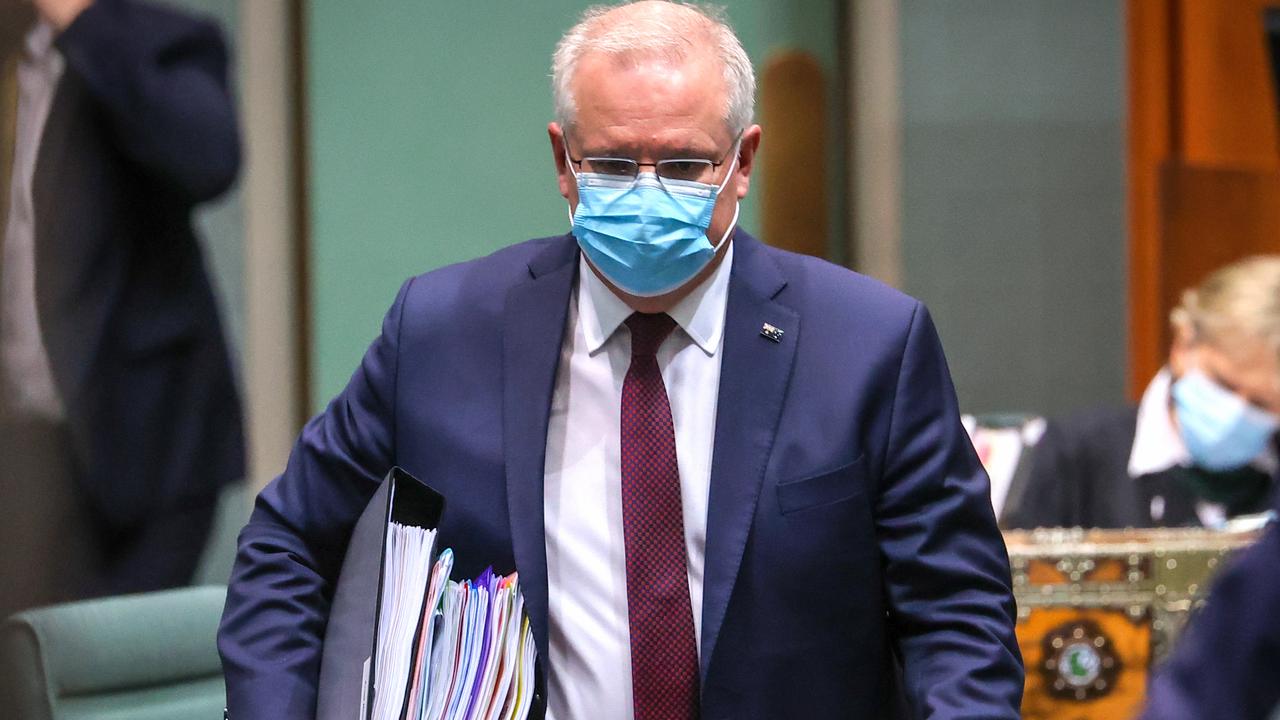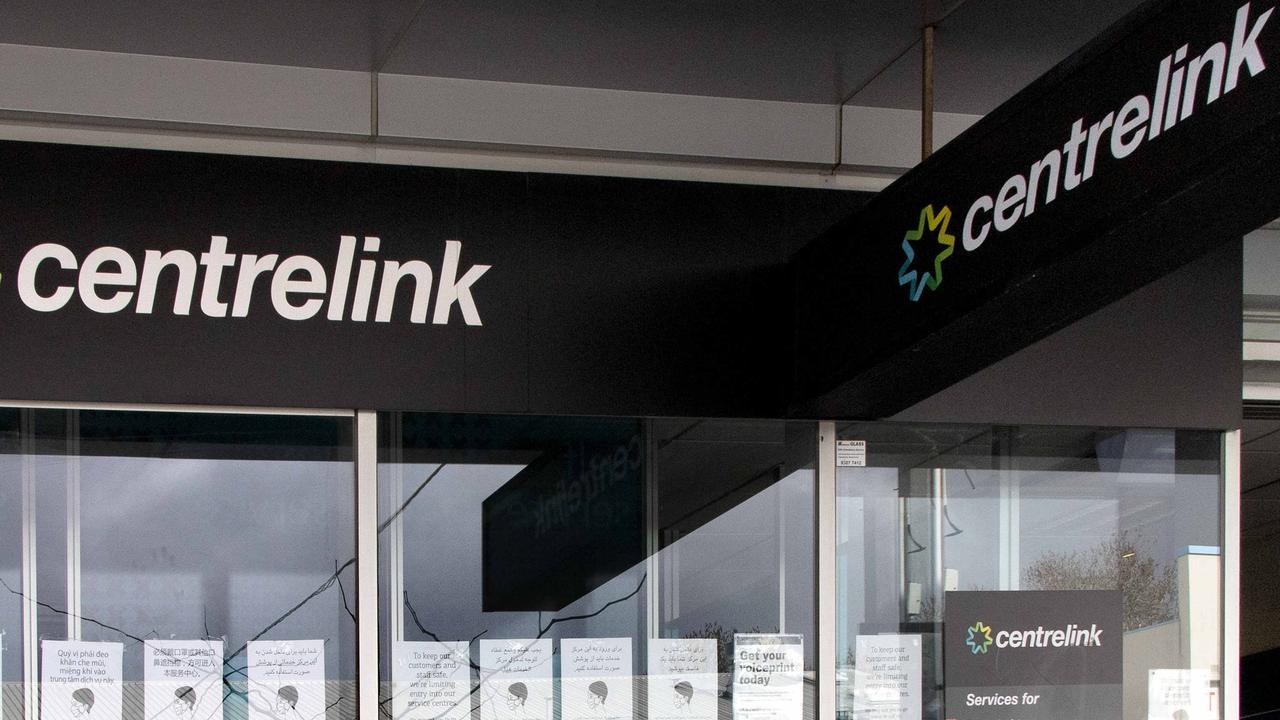Australia recession: 400,000 more jobs will be lost before Christmas
Thousands more Aussies are expected to lose their jobs by the end of the year as the country plunges further into the nation’s worst recession since WWII.

Labor has slammed the Morrison Government’s planned JobSeeker payment cut as thousands more Australians are expected to lose their jobs by Christmas.
The unemployment stimulus, which gives people out of work $1115 a fortnight while they try to find a job, will be cut to $815 on September 24 – and then $565 on December 31 when the supplement is due to end.
Labor fears the reduction will cause mass job losses and a knock-on effect on businesses with consumers having less money to spend. Dropping the payments by $250 means $375 million less will be pumped into the economy.
It comes as Treasurer Josh Frydenberg announced the country is officially in recession for the first time in 30 years.
After the Australian Bureau of Statistics released grim figures that the economy plunged by a record seven per cent in the June quarter alone, Labor leader Anthony Albanese attempted to move a motion to acknowledge the one million Australians out of work and 400,000 more expected to lose their jobs by Christmas.
RELATED: ‘Diabolical’: Grim warning for Aussie jobs

“The Reserve Bank governor says unemployment is going to be higher for longer, and still around seven per cent in two years’ time,” Mr Albanese said.
“The Prime Minister is withdrawing support for Australians and the economy and … (Labor) therefore calls on the Government to develop a plan to create jobs for Australians, instead of withdrawing support and cutting wages.”
Linda Burney, Shadow Minister for Families and Social Services, told the Daily Mail that the JobSeeker rate should be permanently increased to December to help support the economy.
“Australians who are out of work or who have had hours reduced during this crisis are spending their JobSeeker payments on local businesses, sustaining local jobs,” she said.
Treasurer Josh Frydenberg has formulated a five-year-plan to create jobs and re-establish business investments in order to ensure Australia can recover from the recession, which is the nation’s worst downturn since WWII.
Australia has recorded the highest unemployment rate in 22 years as workers struggle to keep jobs due to the economic hit from the COVID-19 pandemic.
RELATED: Follow our live coronavirus updates

Prime Minister Scott Morrison has said he will consider announcing a permanent increase for unemployed workers in the October budget – but he is focused on getting Aussies off JobSeeker and back into work.
More than one million Australians are now out of work and hours worked also fell a record 9.8 per cent. The RBA is expecting the downturn sparked by the pandemic will cause unemployment to peak at 10 per cent.
The Government estimates that 1.5 million Australians will be on JobSeeker in December.
It doubled the stimulus payment in March to cushion the blow for hundreds of thousands of Australians who lost their jobs due to the impact of the pandemic.
Penalties for people refusing a job offer are expected to be reintroduced. Job search requirements will increase this month when the assets test will also return.
The permanent JobSeeker rate to take effect from January next year will be announced in the October 6 budget.
RELATED: Australia’s $158b way out of recession

For business owners, the $1500 JobKeeper fortnightly wage subsidy will continue until September 27 when it will be reduced to $1200 for full-time workers and $750 for people working 20 hours or less.
From January to March, the full-time rate will be $1000 and part-time will reduce to $650.
Without the JobKeeper wage subsidy, Treasurer Josh Frydenberg has warned an extra 700,000 Australians would be out of a job.
Shadow Treasurer Jim Chalmers warned cutting JobKeeper will force the recession into “deeper and longer” territory and Shadow Finance Minister Katy Gallagher accused the Government of failing to provide a plan to address the “very human impact” of the coronavirus-induced recession.



